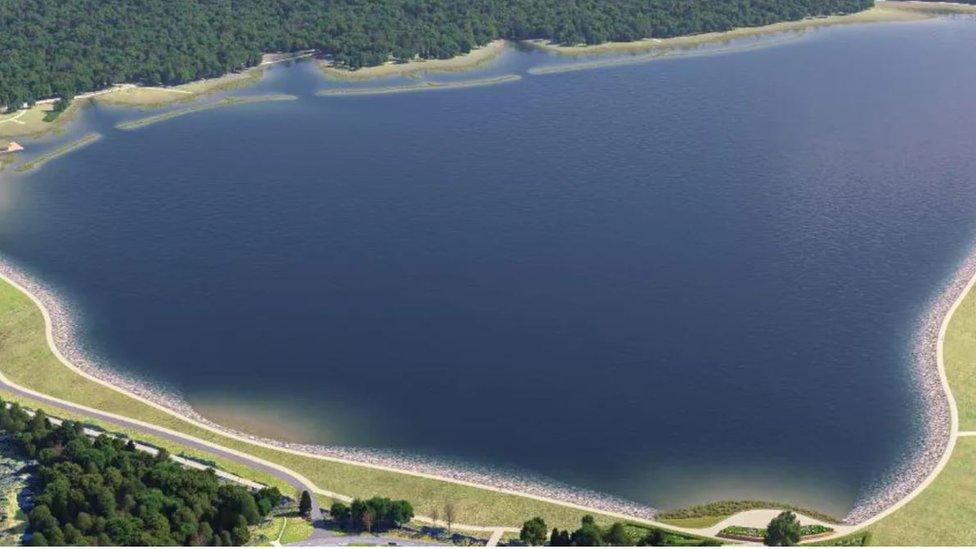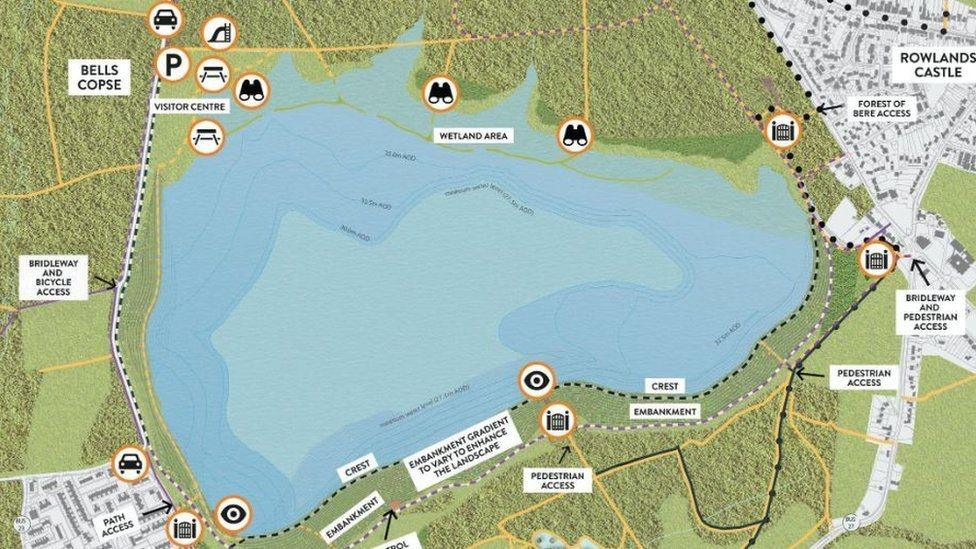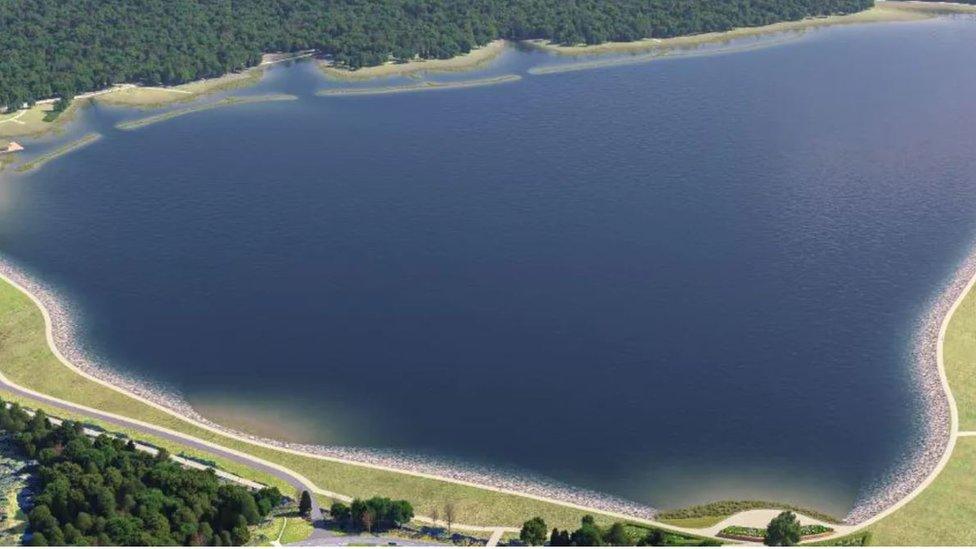Havant reservoir: Treated sewage plan challenged
- Published

The Havant Thicket Reservoir would take up to 10 years to fully commission
Residents and environmentalists are raising concerns over plans to use recycled wastewater for consumption.
Southern Water was given permission to build a reservoir in Havant, Hampshire, in 2021.
Local residents are worried about proposals to supplement the reservoir's spring water with treated wastewater, derived from sewage.
Southern Water said it understood the concerns but stressed water recycling was widely used around the world.
Public consultations are currently under way and will close on 20 February.
Members of the Havant Climate Alliance, Havant Friends of the Earth, Havant Borough Residents' Alliance, Havant Civic Society and Hayling Sewage Watch are to present a letter to the leader of Havant Borough Council on Wednesday, asking for the authority and individual councillors to highlight residents' concerns in the consultations.
In their letter, residents said most people seemed "unaware" of the detailed plans. They also said they feared some would start buying bottled water as a result of the proposals, potentially increasing the use of plastic.

Portsmouth Water owns the 160-hectare site and the reservoir would hold 8,700 million litres of water
Council leader Alex Rennie previously said using recycled wastewater for consumption "was not made clear" by Southern Water in its initial plans.
If the proposals are approved by the Secretary of State, effluent from Budds Farm Wastewater Treatment Works would be sent to another facility for additional treatment before being discharged into Havant Thicket Reservoir, according to the Local Democracy Reporting Service.
Portsmouth Water, which owns the 400-acre (160-hectare)) site, said water recycling was "a well-established and widely-used water treatment process" that provided "a sustainable source of clean, safe drinking water - reducing the amount needed to be taken from the environment".
The reservoir would take up to 10 years to fully commission and would hold 8,700 million litres of water, supplying up to 21 million litres each day.
Mark Wintringham, head of delivery for Southern Water, said the company needed to develop new water resources to maintain public supplies and protect "the county's precious rivers and natural environment".
"We all rely on our environment for the water we need, but there isn't an endless supply," he said.
He added Hampshire faced the challenge "head on" due to population growth and climate change.
"By topping up the reservoir with purified, recycled water, there will be more available for public supply," he continued.

Follow BBC South on Facebook, external, Twitter, external, or Instagram, external. Send your story ideas to south.newsonline@bbc.co.uk, external.
Related topics
- Published19 August 2022

- Published4 June 2021

- Published22 May 2020
